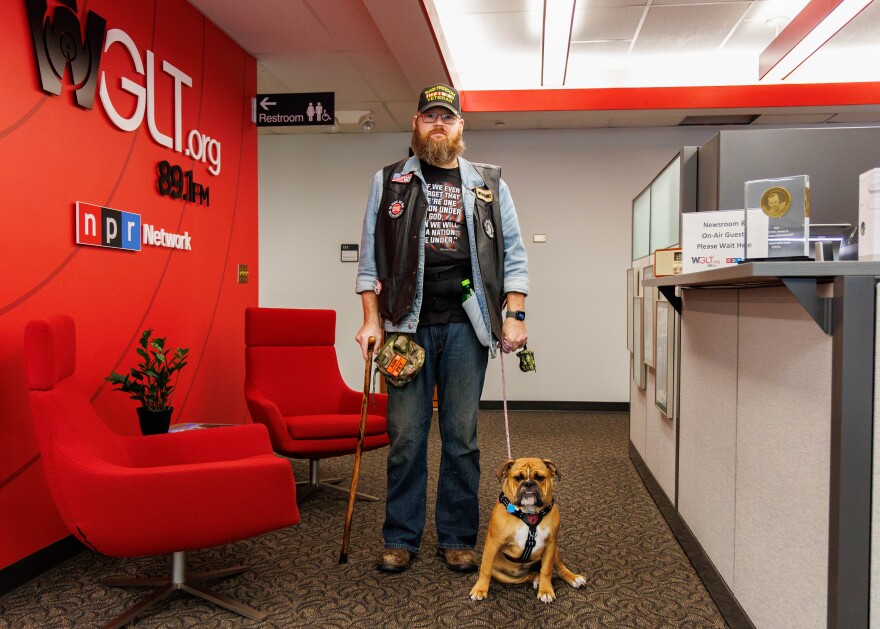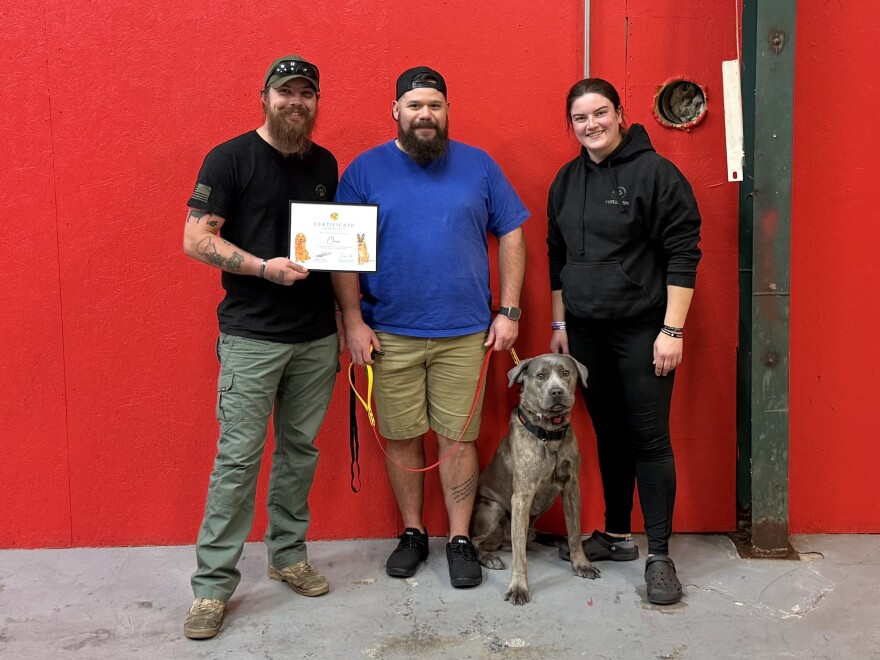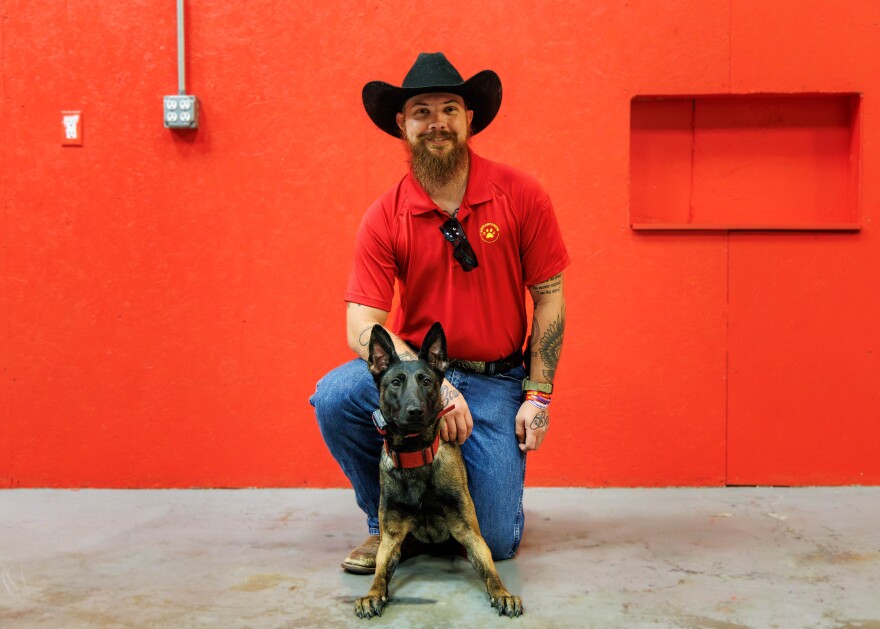Dogs have been called “man’s best friend” for thousands of years, though their exact origins as companions are still up for debate.
From guarding early camps to helping with hunting, dogs have served as loyal partners to humans. Today, they continue to support people by assisting those with disabilities, detecting explosives, providing protection and offering comfort to individuals with post-traumatic stress disorder [PTSD].
Training dogs for those tasks is no easy feat, but Devildog Canine in Normal is up for the challenge.
Training with purpose
Devildog Canine co-founder Michael Parker trains dogs in basic obedience, therapy, protection and service work.
“You name it, we pretty much do it,” Parker said.
Before learning how to train dogs, Parker was a horse trainer and used horses and outdoor activities to help fellow veterans.
“I used to be that person that thought that horses were actually a man's best friend until I got a service dog,” he said.
Parker served in the U.S. Marine Corps from 2012 to 2015. He received his first service dog, Levi, in 2023. Levi passed away recently.

“You can't replace him,” Parker said. “But [I’m] training my new puppy to step up and take over that role.”
Along with his new dog, Padme, Parker is training several others — some belonging to veterans.
Parker also trains dogs not owned by veterans, but he said as a veteran himself, these ones are near and dear to his heart.
Helping veterans
One of those veterans is Dennis McDonald, who served in the U.S. Army from 1996 to 2010.

McDonald said coming home from duty took a lot of adjustment. He said he still struggles with loud noises and large crowds, but credits his dog, Belle, with helping him stay calmer and less depressed.
McDonald said many veterans, whether they admit it or not, live with anxiety, depression or PTSD.
“I know if it wouldn't have been for my last dog and [Belle], I would probably be a little bit worse off than I am now,” he said.
At Devildog Canine, Belle is learning obedience and deep pressure therapy.
A recent study concluded that having a service dog can reduce symptoms of PTSD in veterans, and deep pressure therapy is one of the actions dogs can do for this.
This is especially important when suicide rates among veterans are higher than the general U.S. adult population.

Navy and Army National Guard veteran Ed Ruhrup also brought his dog, Miko, to Devildog Canine. Parker trained the German shepherd to serve as a guard dog and a companion.
Not only does Miko protect Ruhrup and his wife, but the training has strengthened their companionship.
“We've already got a pretty good bond to help bring my anxiety down,” Ruhrup said. “And I help him with his anxiety too. So we're kind of a mutual help.”
Ruhrup said Miko can understand his emotions and read his face, no matter what he’s feeling.
“He'll feel it in the air,” Ruhrup said. “So he knows exactly how I'm feeling, if he needs to be there, if he needs to give me some space, but be in the area. He is real good about that.”
He added that Miko’s attentiveness comes directly from their training with Parker.
Another veteran who trains with Devildog Canine is Kris Ellis.

Ellis joined the Marine Corps Reserves right after high school, later taking a five-year break before serving in the Army. He has been out of the military since 2022.
Ellis said he got a dog because it gave him something to focus on.
“So that way, my thoughts weren't just running rampant,” Ellis said.
Ellis has been going through the Veterans Treatment Court program, a specialized court designed to divert veterans involved in the criminal justice system into a program that provides treatment, counseling and support.
“I knew I needed help, and that's kind of one of the hardest things for any male to do, let alone a veteran male to do,” Ellis said.
The court did not explicitly recommend Ellis get a dog, but he said he figured it would be helpful.
For some veterans, training with Devildog Canine offers more than obedience lessons. It provides community and purpose.
In the near future, Parker said he plans to start a free weekly group class for veterans and first responders. The class will consist of dog training sessions and a peer group.



